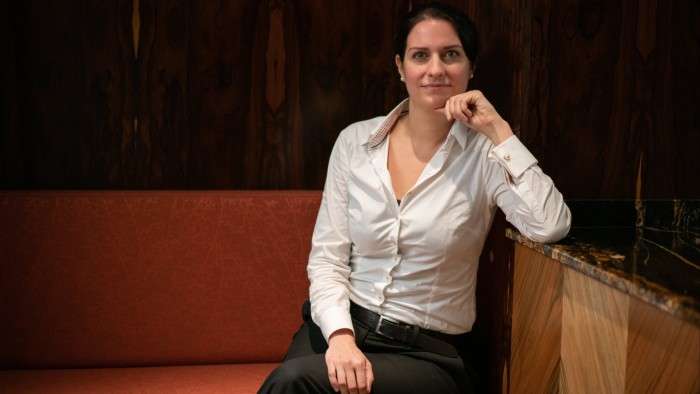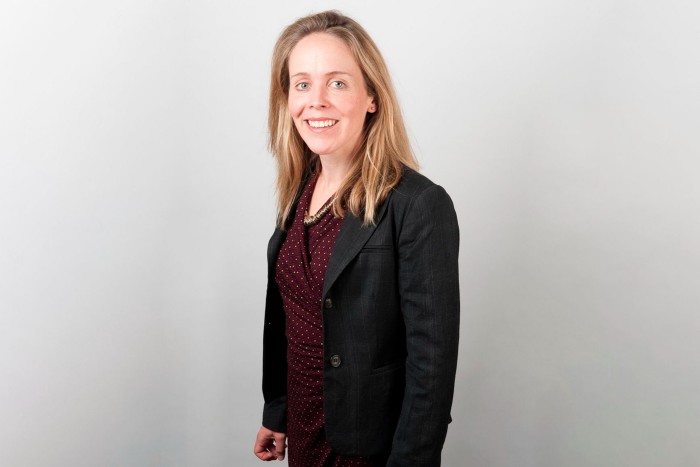Wealth managers refocus to respond to women

Roula Khalaf, Editor of the FT, selects her favourite stories in this weekly newsletter.
For many decades, the UK’s wealth management industry was heavily male-dominated, and focused largely on the husbands who, on the whole, both earned and managed clients’ family finances.
That focus has broadened in recent years, driven partly by the rise of female entrepreneurs and career women and partly by the fact that women often outlive their spouses, so often take control of the family wealth when their husbands die and before it passes to the next generation. While this has long been true, the unprecedented wealth amassed by the post-second world war cohort has created many more rich widows.
Wealth management reports frequently cite the Centre for Economic and Business Research’s eye-opening revelation that 60 per cent of UK wealth will be in women’s hands by 2025.
Wealth managers who fail to recognise the specific needs of a growing potential female client base, or assume that a “one size fits all” approach will do the job, are therefore likely to miss what could prove to be a rewarding field.
Financial Conduct Authority data last year revealed that only 16 per cent of advisers are women. Recent research from Schroders found that only 5 per cent of advisers have a differentiated strategy for attracting and retaining women clients.
It’s not about inventing something totally new for female clients but about responding to the ways women think a bit differently about money.
Victoria Ross, a chartered financial planner at Progeny, says women’s approach to investing tends to differ from that of men. “I believe that objective and goal-based financial planning has more to offer women, as opposed to a focus that is purely on the accumulation of wealth,” she explains.
As evidence, she highlights research by Progeny and YouGov on inheritance planning. “Women were more concerned about the amount of IHT their children would have to pay, and had less confidence about both giving and receiving an inheritance, whereas men were more concerned about maintaining their lifestyle in retirement. It points to a goals-based approach that focuses on increasing wealth for the whole family,” she observes.
Charlotte Tattersall, a financial planner at RBC Brewin Dolphin, argues that initiatives targeting women are not about product differentiation. “Products and solutions are the same for all clients,” she stresses.

More broadly, the focus is on recognition of the different circumstances that may bring women to seek financial help, the ways in which they may feel inhibited or uncomfortable, and the opportunities to educate and empower.
Of course, female clients take many forms. Some are time-poor businesswomen or entrepreneurs seeking to delegate, and many want guidance as they approach retirement. But a sizeable number are either going through divorce or recently widowed and trying to make decisions that historically were made as a couple or left to their partner.
Rebecca Tunstall, an investment director at Rathbones Investment Management, focuses specifically on divorcees. “Most are in charge of their own finances for the first time in their lives,” she says. While the immediate job is to guide them through the practical financial issues thrown up by the divorce, “it’s vital to empower women who may not have had much experience with investments with the knowledge and understanding to be able to engage with us”.
In this context, many market-leading and boutique firms see the value of ensuring that female clients can be advised by female advisers. Sarah Roughsedge, who went further and set up her own firm, Eva Wealth Management for Women, explains why the female focus makes sense.

“My own experience in the financial services industry was characterised by an aggressive and overwhelmingly masculine environment that struck me as intimidating,” she says. “I wondered how this kind of atmosphere would affect the women actually seeking advice, particularly those going through divorce, grieving or just starting to manage financial matters and feeling uncertain.”
There is a strong sense among female wealth managers that they are better placed than men to empathise with women clients, because they too have juggled career, motherhood, caring for elderly relatives and the impact of pay and pensions gaps on finances.
That is backed to some extent by a 2013 study from the US Insured Retirement Institute, which found that 70 per cent of women seeking a financial adviser would prefer to work with a woman — though it also suggests that wealth management skills may be more important than adviser gender for the remaining 30 per cent.
Especially for women who are newly widowed, patience may be required. “The process for financial planning often takes longer than usual,” Ross says, involving additional meetings, plenty of time for clients to process choices and “a lot of communication between adviser and client in order for them to feel supported”.

Tattersall agrees. She highlights Brewin Dolphin’s undertaking to change its culture to prioritise clients’ needs: “For example, we don’t charge differently if someone needs more initial meetings.”
Education is another priority for advisers keen to grow a financially confident female client base, says Roughsedge. “Many women lack confidence when it comes to investing, and the wealth management industry must address this disparity.”
Tattersall observes that although women tend to be more cautious investors than men, “they will take more risk once they have gained knowledge and understanding, which is why the right advice is so important”.
Some action is being taken on financial education. Rathbones, for instance, offers a financial awareness course covering the basics. “The aim is to give women a better understanding of how investments work, and in an environment where they can ask questions without being judged,” says Tunstall.
Ultimately, firms that recognise the nuanced gender-based differences in investing attitude and confidence are likely to be best placed to attract female clients.
Comments